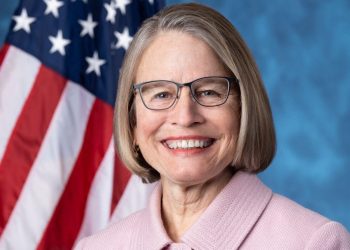DES MOINES, Iowa – U.S. Senator Chuck Grassley, R-Iowa, the ranking member of the Senate Judiciary Committee, questioned Attorney General Merrick Garland over his October 4 memo calling for federal intervention to prevent violence against local school board members and educators.
“The Department takes these incidents seriously and is committed to using its authority and resources to discourage these threats, identify them when they occur, and prosecute them when appropriate,” the memo reads in part.
During a Senate Judiciary Committee hearing on Wednesday, Grassley asked Garland whether he would revoke his memo after the National School Board Association Board backtracked from the letter they sent to the U.S. Department of Justice (DOJ) on September 29.
Garland stood by his memo.
“I have the letter from NSBA that you’re referring to. It apologizes for language in the letter, but it continues its concern about the safety of school officials and school staff. The language in the letter that they disavow, this language was never included in my memo and never would have been. I did not adopt every concern that they had in their letter. I adopted only the concern about violence and threats of violence. And that hasn’t changed,” he answered.
Iowa Association of School Boards said it disagreed with NSBA’s letter, and three state associations have terminated their affiliation with NSBA over it.
Grassley asked who in the DOJ was responsible for drafting his “polarizing” memo.
“I signed the memo and I worked on the memo,” Garland replied.
Grassley continued with his questions.
“Your memo mentions that the National Security Division will get involved in school board investigations. Is the Justice Department’s National Security Division really necessary for keeping local school boards safe? If parents aren’t domestic terrorists, as the Patriot Act isn’t being used, why is the National Security Division involved at all? This kind of looks like something that would come out of some communist country’s expansive definition of national security,” he asked.
Garland said the DOJ is not concerned about spirited debate.
“The memo is only about violence and threats of violence. It makes absolutely clear. In the in the first paragraph, that spirited debate about policy matters is protected under our Constitution. That includes debate by parents criticizing school boards. That is welcome. The Justice Department protects that kind of debate. The only thing we’re concerned about Senator is violence and threats of violence against school officials, school teachers, school staff, just like we’re concerned about those kinds of threats against senators, members of Congress, election officials. In all those circumstances, we are trying to prevent the violence that sometimes occurs after threats,” he replied.
Grassley asked how the DOJ is handling reports they receive.
“Your memo stated that the Justice Department is opening dedicated lines of communication for threat reporting, assessment, and response. What is the department doing with tips it receives on this dedicated line? And what are you doing with those parents who have been reported?” he asked.
Garland said that the FBI assesses information it receives.
“The FBI gets complaints, concerns from people around the country for all different kinds of threats and violence. That’s what this is about, a place where people who feel that they’ve been threatened with violence can report that. These are then assessed, and they are only pursued if consistent with the First Amendment, we have a true threat that violates federal statutes, or that needs to be referred to state or local government, local law enforcement agency for their assistance,” he explained.
Grassley then asked if DOJ is investigating improper data collection of parents by schools.
“On the other hand, are their criminal investigations being opened for instances where school officials are trying to assess private data of parents with opposing views on critical race theory?” he asked.
“I don’t know about that. But the Justice Department certainly does not believe that anybody’s personal information should be accessed in that way. If there’s a federal offense involved or a state or local offense involved and of course those should be reported,” Garland answered.














